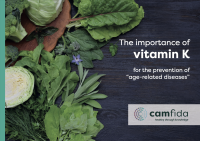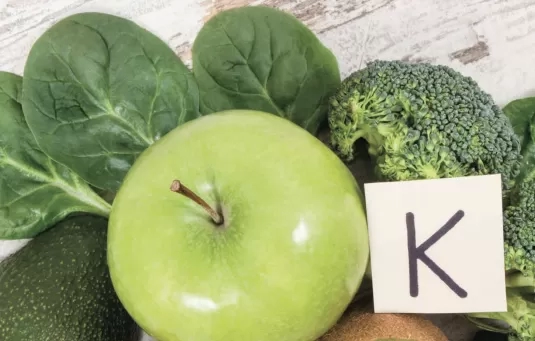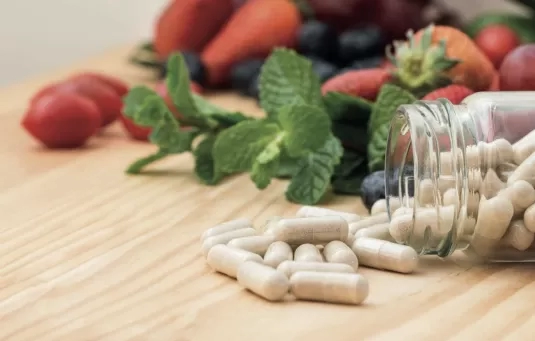The importance of vitamin K for a healthy gut, and vice versa
Intestinal (inflammatory) diseases and gut dysbiosis can contribute to vitamin K deficiency by decreasing absorption, increasing consumption, and reducing vitamin K production by intesti- nal bacteria. People with dysbiosis or intestinal diseases often have vitamin K deficiency – and its consequences (Schoon EJ, 2001; Kuwabara A, 2009; Nowak JK, 2014; Ponziani FR, 2017; Wagatsuma K, 2019).
A healthy microbiome is an important source of vitamin K. The use of broad-spectrum antibio- tics (which kill vitamin K-producing bacteria) can cause vitamin K deficiency (Conly J, 1994; Aziz F, 2015).
A healthy microbiome is an important source of vitamin K. The use of broad-spectrum antibio- tics (which kill vitamin K-producing bacteria) can cause vitamin K deficiency (Conly J, 1994; Aziz F, 2015).

Request brochure




